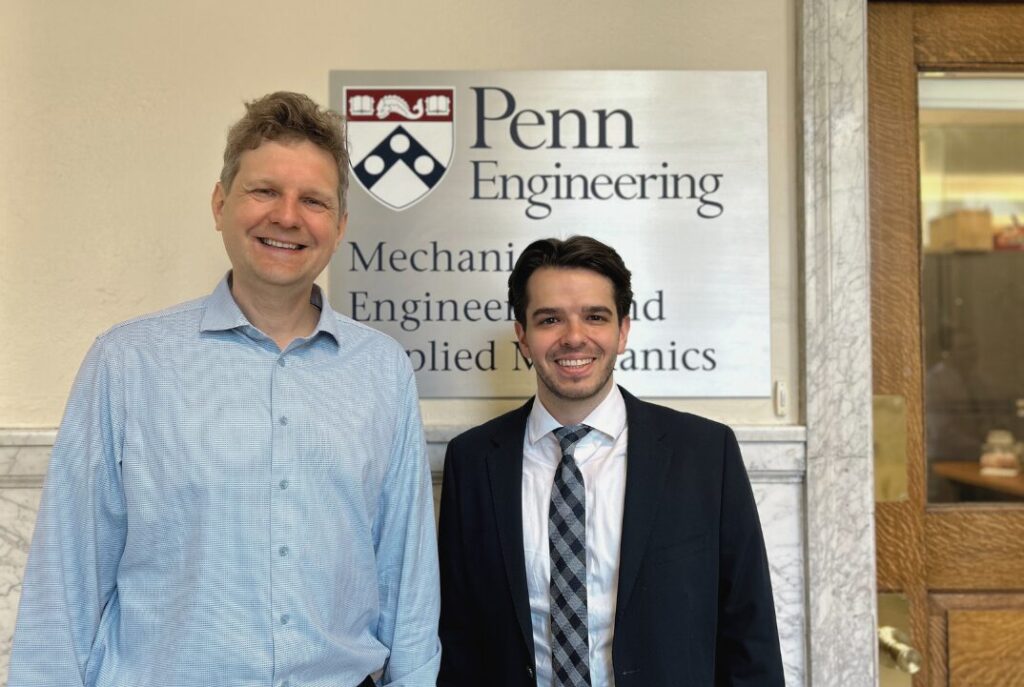
Tom Celenza has successfully defended his doctoral dissertation, “Enhancing Photophoretic Levitation using Three-dimensional Structures for Flight in the Mesosphere and on Mars,” under the guidance of Igor Bargatin, Associate Professor in Mechanical Engineering and Applied Mechanics (MEAM). Celenza’s research opens new frontiers in atmospheric observation, focusing on environments that have long remained unexplored due to their unique challenges.
Celenza’s work centers on developing aircraft capable of operating in Earth’s mesosphere and the Martian atmosphere—regions too dense for satellites yet too thin for conventional aircraft. His novel approach harnesses photophoresis, the movement of gas molecules induced by light, to create ultralight vehicles designed for these challenging environments.
The core of Celenza’s dissertation involves designing ultrathin, ultralight objects with specialized microstructures that can achieve levitation using only light. By optimizing 3D hollow geometries, he demonstrated the potential for these photophoretic aircraft to carry significant payloads high into Earth’s atmosphere. His comprehensive research spans theoretical modeling, computer simulations, and practical experiments, including the fabrication of millimeter-scale prototypes and the development of scalable manufacturing methods.
Reflecting on his Ph.D. experience, Celenza shares, “My Ph.D. journey was difficult but in the most rewarding way. MEAM and Penn provided access to resources and technology I never thought I’d experience, from nanotechnology in the Singh Center to top-tier advising and teaching mentorship from professors, and of course, the valuable friendships with extremely intelligent colleagues.”
One of the most memorable aspects of Celenza’s time at Penn was achieving a NASA-funded fellowship. This opportunity allowed him to spend a summer in California, conducting research and presenting his work at multiple conferences. “I immersed myself in the world of space technology research, learned how NASA missions develop and deploy, and saw in-person where they build out some of their most massive projects,” Celenza recalls.
Celenza expresses deep gratitude, stating, “I would like to thank Igor Bargatin, for being such a spectacular advisor, my family for pushing me to this finish line, and more people than I can thank here from the Bargatin Group, past and present members, for endless mentorship and friendship.”
As Celenza concludes this chapter of his academic journey, he will be joining Exponent as a Thermal Sciences Associate.
